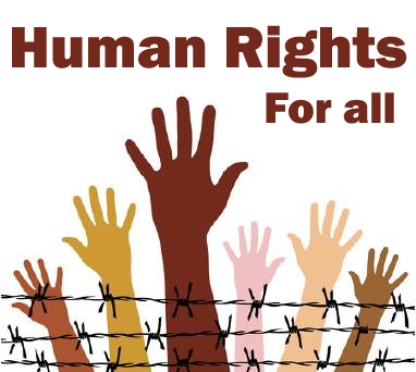Sri Lanka wants economic rights in agendas of foreign grants for rights promotion
By P.K. Balachandran
COLOMBO – Sri Lanka would want certain key socially relevant economic rights to be included in the agendas of foreign grants for human rights promotion in the country, a top government source said.
He was commenting on the proposed US grant of US$ 1.75 million to US$ 2 million for promoting freedom of association and freedom of assembly in Sri Lanka, announced by the US Department of State Bureau of Democracy, Human Rights and Labor (DRL) on Friday (18).
The source, who did not want to be named, said he had not seen the offer yet, but added that, as a general principle, such offers from foreign countries would be welcome if they were meant to promote human rights as prioritized by Sri Lanka.“Given the urgent development needs of the masses, Sri Lanka’s concept of human rights gives top priority to socio-economic group rights like the right to education, livelihood, health, employment and housing. If any or all of these five goals find inclusion in an aid offer, we will have no hesitation in allowing it,” the source said.
Interestingly, the US offer comes in the wake of the withdrawal by the US of a grant of US$ 480 million under the Millennium Challenge Corporation (MCC) Compact citing indifference on the part of the Sri Lankan government. The US last week withdrew the offer stating “lack of engagement on the part of the partner country,” namely Sri Lanka. The money would now go to an eligible country.
Sri Lankan nationalists, including a presidential commission, were of the view that a part of the MCC scheme relating to land was unsuited to local traditions and that it abridged the country’s sovereignty.
The website of the US Department of State, Bureau of Democracy, Human Rights and Labor (DRL) announced on Wednesday that it is to hold an open competition for organizations interested in submitting applications for projects that advance and protect freedom of association and freedom of assembly in Sri Lanka.
“The 2020 Human Rights Report, the UN Special Rapporteur on the Rights of Freedom of Association and Peaceful Assembly noted that although the country had a comprehensive legal framework governing the right to freedom of peaceful assembly, it was scattered in different sets of laws and regulations which seem to be interchangeably enforced,” the statement said.
DRL seeks proposals for programs that utilize legal mechanisms and the judicial system to ensure these legal protections are enforced and these rights are respected in Sri Lanka. Proposals should assess the use of policies, laws and programs on democratic political competition, civil society, and media freedom that are being put into place in Sri Lanka under the new government.
The proposals should provide legal and organizational support to organizations and individuals facing undue government restrictions, pressure, inspections, and censorship to ensure they can continue to operate, as well as foster civil society-led strategic litigation to advance the protection, fulfillment, and respect of human rights.
Program approaches may include but are not limited to:Strengthening the role, status and capacity of defense lawyers and legal professionals; Expand the capacity of judicial watchdog organizations to monitor, document, and advocate in support of fair judicial process and court decisions; Develop public-awareness and advocacy campaigns that can be implemented via multiple media and social platforms; Assist small NGOs or informal advocacy organizations with innovative methods of civic engagement at the community level.
The proposed program must also address how it will ensure coordination with existing civil society networks, as well as ongoing civil society-led strategic litigation and advocacy efforts; all proposals must demonstrate that they do not duplicate existing efforts.
Proposed programming must be responsive to immediate needs on the ground, must be in line with the US government’s democracy, governance, and human rights goals in Sri Lanka; and should contribute to and support Sri Lanka’s efforts to strengthen democracy, governance, and human rights in the country.
All programs should aim to have impact that leads to reforms and should have the potential for sustainability beyond DRL resources. DRL’s preference is to avoid duplicating past efforts by supporting new and creative approaches.
This does not exclude from consideration projects that improve upon or expand existing successful projects in a new and complementary way.
Programs should seek to include groups that can bring perspectives based on their religion, gender, disability, race, ethnicity, and/or sexual orientation and gender identity. Programs should be demand-driven and locally led to the extent possible.
Activities that are not typically allowed include, but are not limited to: The provision of humanitarian assistance; English language instruction; Development of high-tech computer or communications software and/or hardware; Purely academic exchanges or fellowships; External exchanges or fellowships lasting longer than six months; Off-shore activities that are not clearly linked to in-country initiatives and impact or are not necessary per security concerns; Theoretical explorations of human rights or democracy issues, including projects aimed primarily at research and evaluation that do not incorporate training or capacity-building for local civil society; Micro-loans or similar small business development initiatives;Initiatives directed towards a diaspora community rather than current residents of targeted countries.
This notice is subject to availability of funding, DRL said.
– newsin.asia


